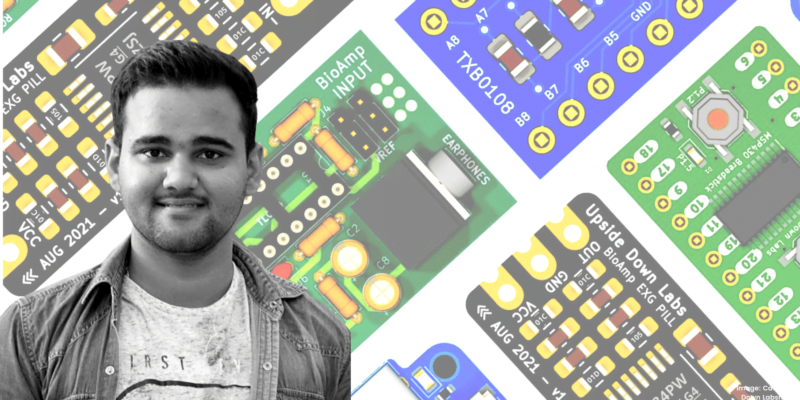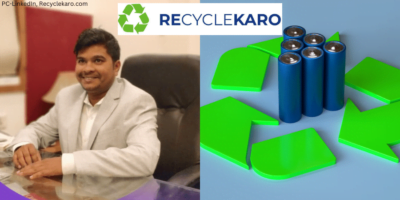Deepak Khatri, a Delhi-based engineer, formed Upside Down Labs, which developed India’s first DIY neuroscience kit.
Deepak Khatri began playing with electronics when he was six years old. He disassembled his toys to investigate the parts and how they functioned. He had progressed to larger goods by the age of eight, such as television sets, which he opened up to study and inspect their internal processes.

After completing the appliances at home, he began visiting scrap yards. He would buy soldering irons and other objects, then open them to try to figure out what circuits were within. He also read literature with detailed circuit diagrams.
In class eleven, he studied computer science. With this new information, he would experiment with circuits more, but it would take him another two years to realize what his genuine love was.
One Step At A Time: Here Is How His Passion Led To His Goal
When he stumbled onto a TED Talk by neuroscientist Greg Gage in 2016, he was a first-year engineering student at Netaji Subhas Institute of Technology in Delhi.
Gage controls the arm of another individual using DIY neuroscience equipment. Two persons are connected to the kit, and the second person’s arm moves in response to the first person’s brain signal as shown in the video. His interest in neurobiology was piqued by this amazing film.
Who Is Greg Gage?
Greg Gage is a co-founder and the chief executive officer of Backyard Brains, a company that offers neuroscience kits to kids of all ages. Since all of their information is available online, Khatri decided to explore their kits and attempt to assemble one.

Inspired By Gage’s Video, Deepak Builds His Own Circuit
He attempted to build the circuit after seeing their hardware diagram online. However, the material cost was approaching Rs 1,000, which at the time was a lot for me. Then he looked into each component’s technology separately. He paid less for the components and created the identical circuit for Rs 100.
The 24-year-first old’s neuroscience experiment in 2016 inspired him to launch Upside Down Labs four years later. He claims that this is the first DIY neuroscience kit start-up in India.
Because of how my room seemed at the time, he gave it the name Upside Down. He likes the television program Stranger Things, which takes place in a world known as the Upside Down.
The biotechnology engineer began developing affordable designs to reduce the cost of neuroscience kits.
He took part in the free and open-source software coding project Google Summer of Code that year, which pays participants a stipend. He earned Rs 2 lakh in this project, which he utilized to launch his business from scratch.
Upside Down Labs
He registered his business, Upside Down Labs, in December 2020. The goal of the firm is to increase students’ access to neuroscience in India and foster their interest in the subject from an early age. Greg Gage claims that 1 in 5 people will likely experience a neurological illness and that more people need to be studying the brain.
In order to allow students and researchers to learn more about the field through hands-on projects, he has developed inexpensive DIY neuroscience kits, with prices starting at Rs 499. Students in Class 6 and older may use the products, but those under that age may only do so under parental supervision. In order for everyone to learn, they have also maintained all of their research open-source.
There are now eight products available, with the Bioamp EXG pill being the most well-liked. Without employing any additional hardware or software filters, one may capture biopotential signals from the heart (ECG), muscles (EMG), eyes (EOG), and brain (EEG) using this board. The products can be purchased on Amazon alongside Upside Down Labs Store.
All biopotential signals can be measured by this little gadget. It is incredibly simple to use across multiple projects thanks to its small design.
If you liked reading this post, you should also read about Priyadarshan Sahasrabuddhe, An IIT engineer who helps you convert your home kitchen waste into green biogas for cooking
If you know more inspirational stories about a person, company, new idea, or social initiative, and want us to write them on mad4india.com, share such information with us on Facebook or LinkedIn.



